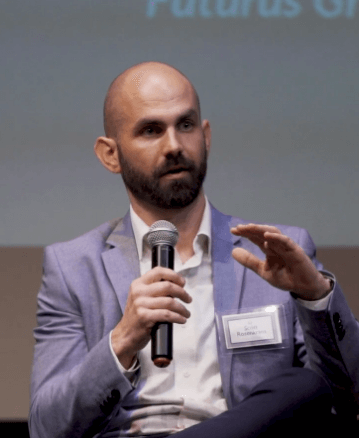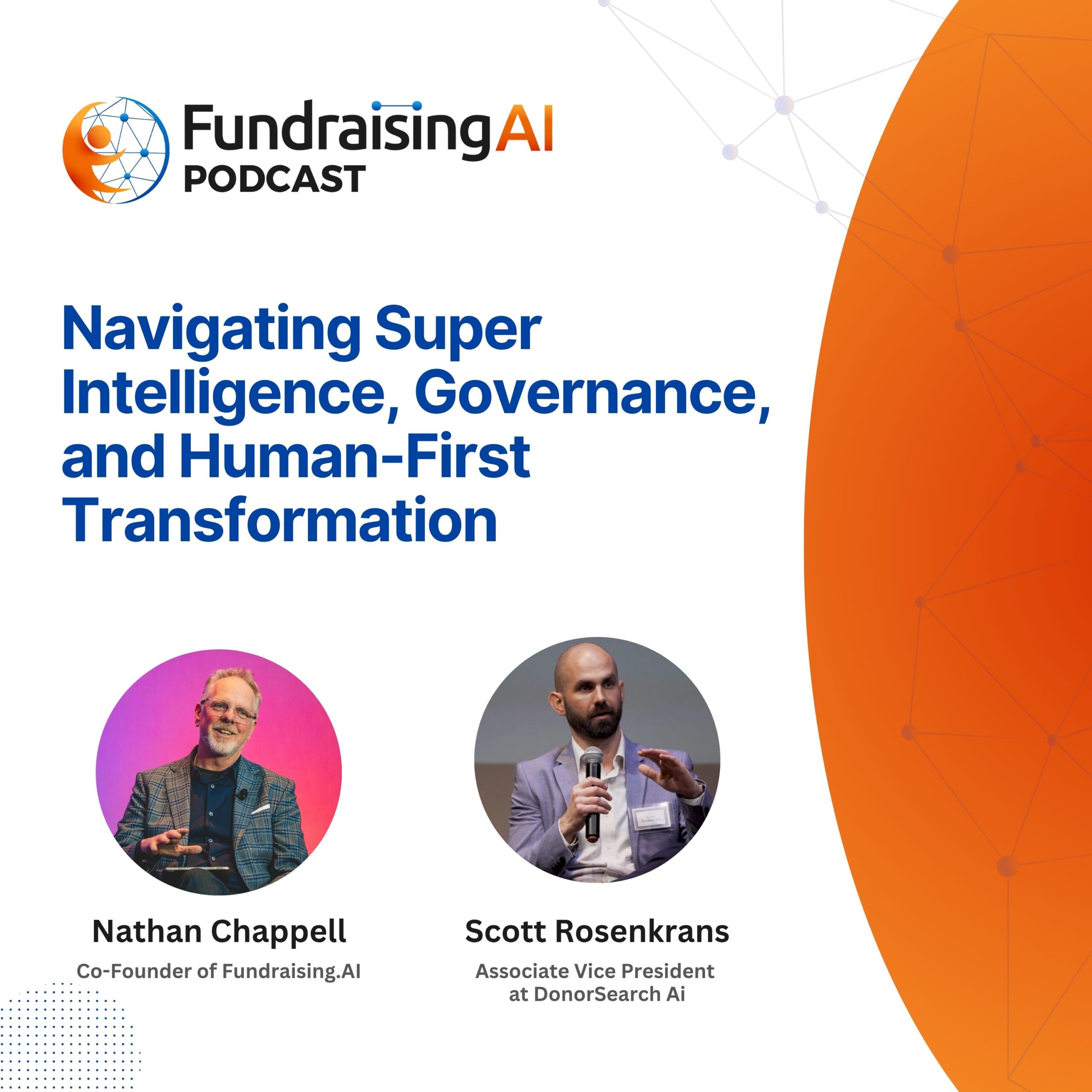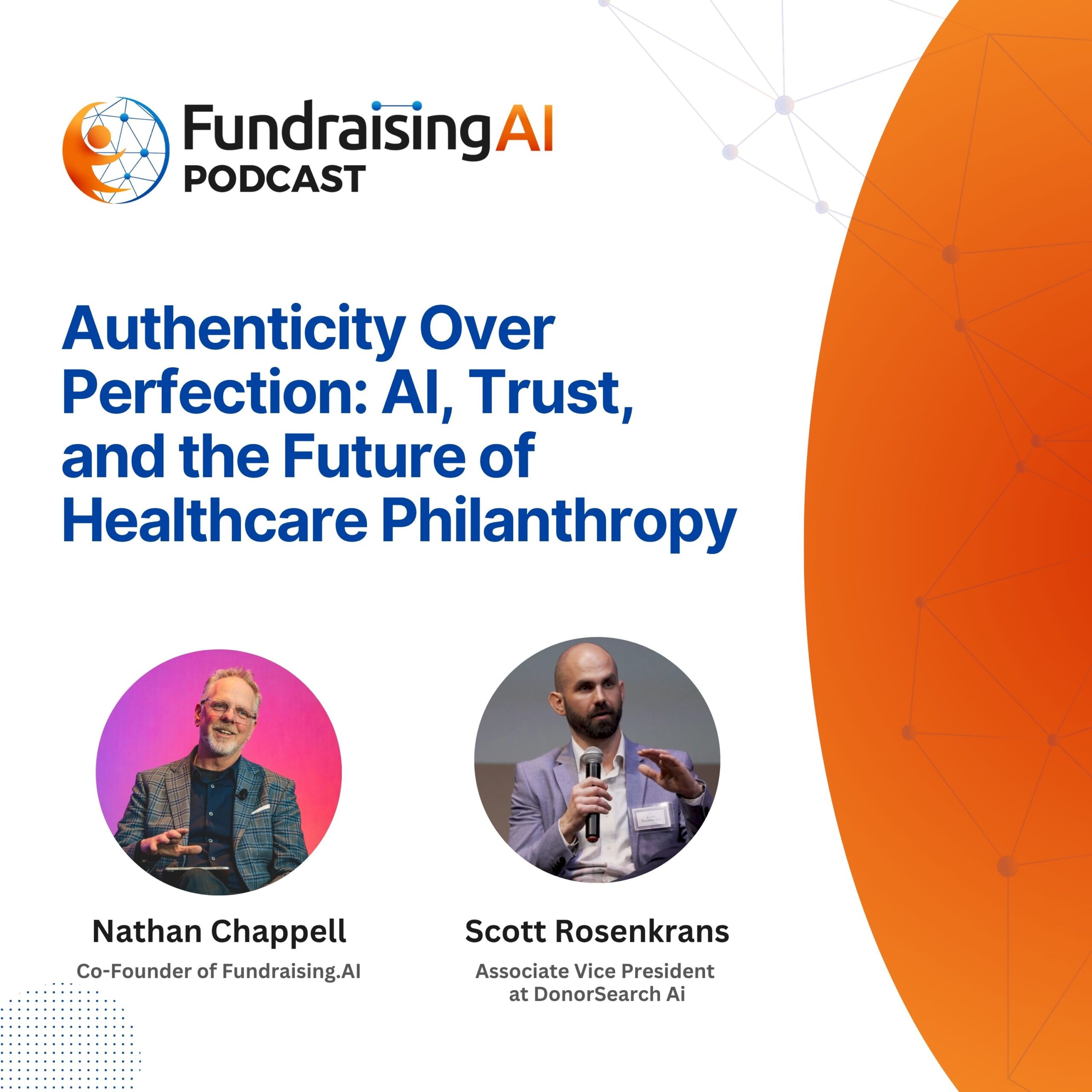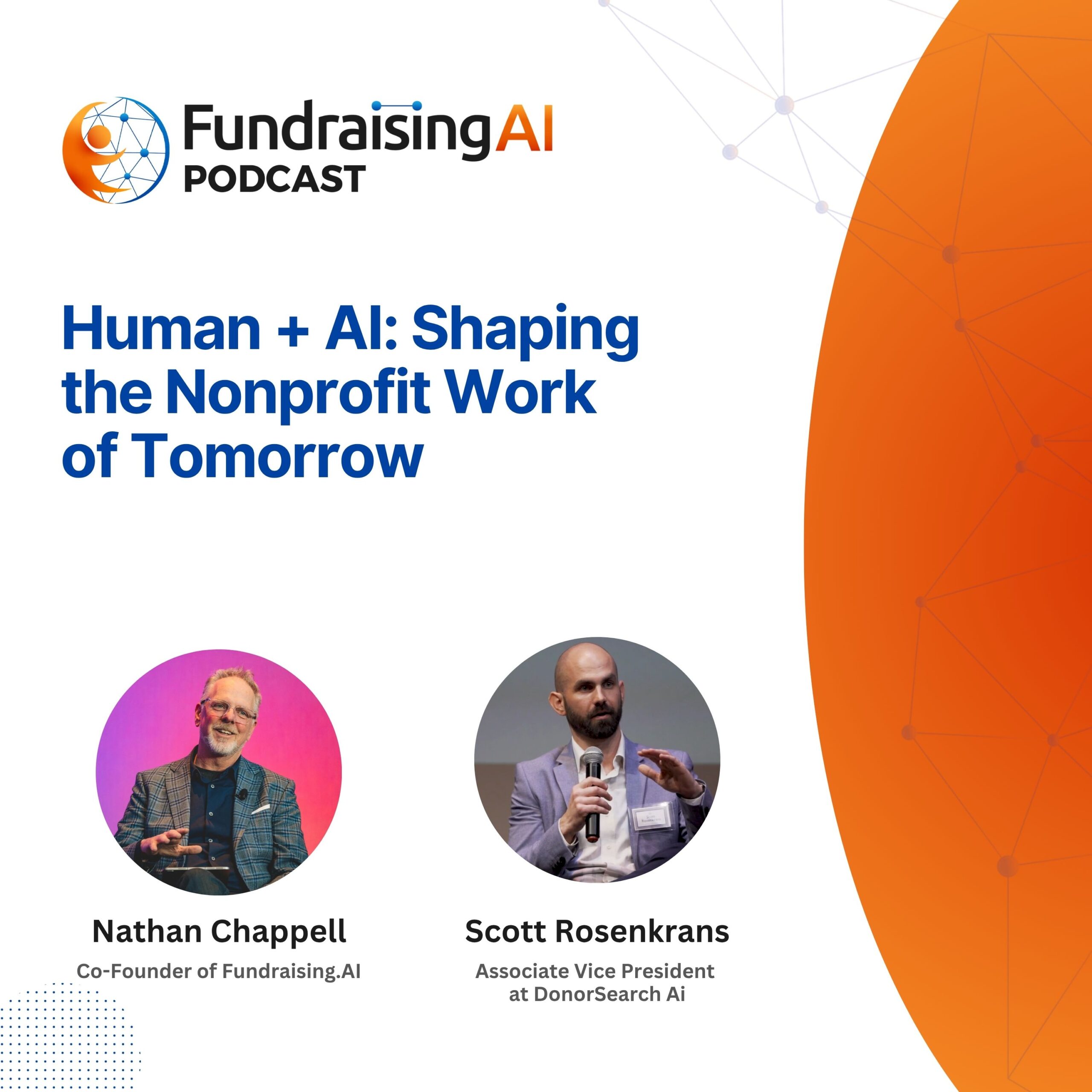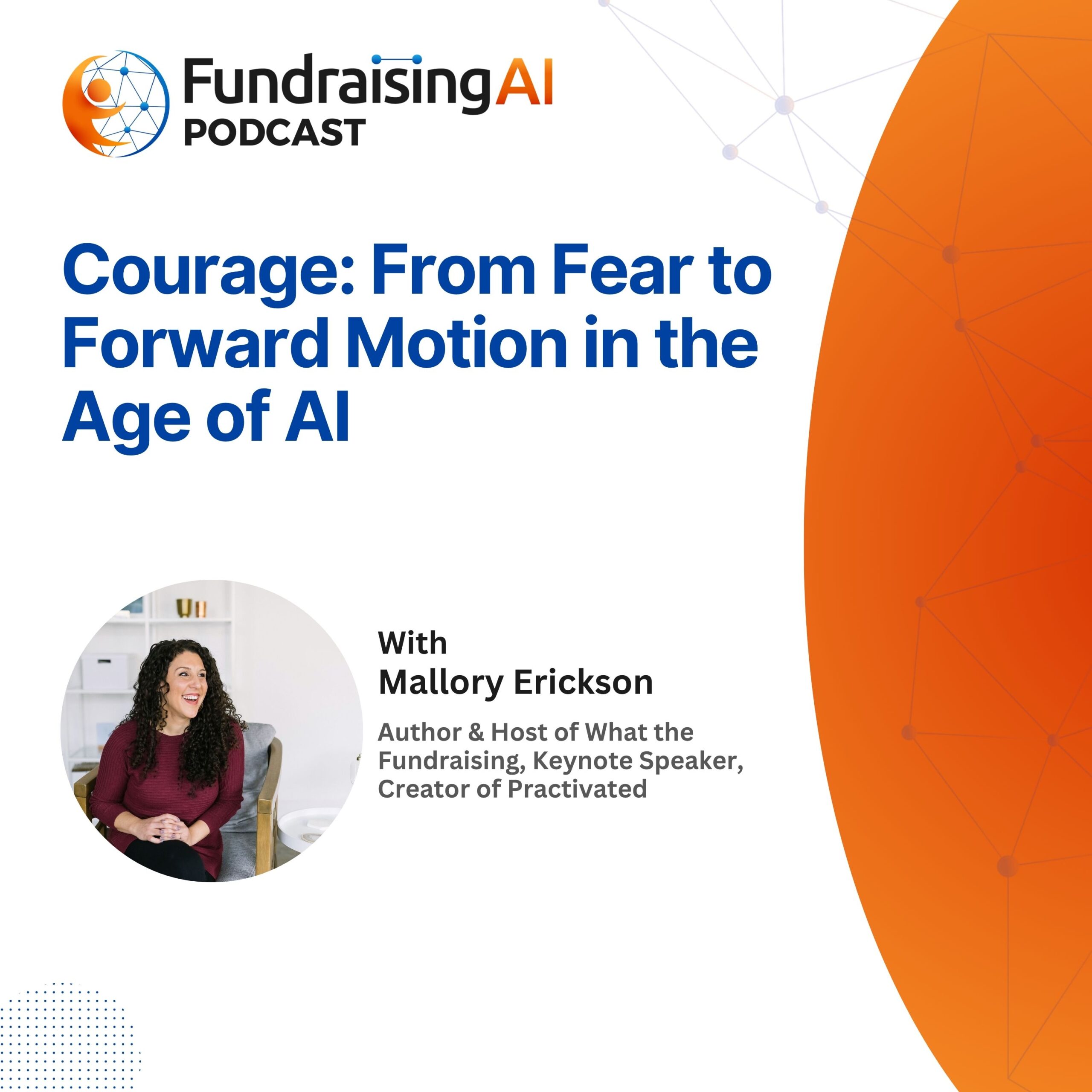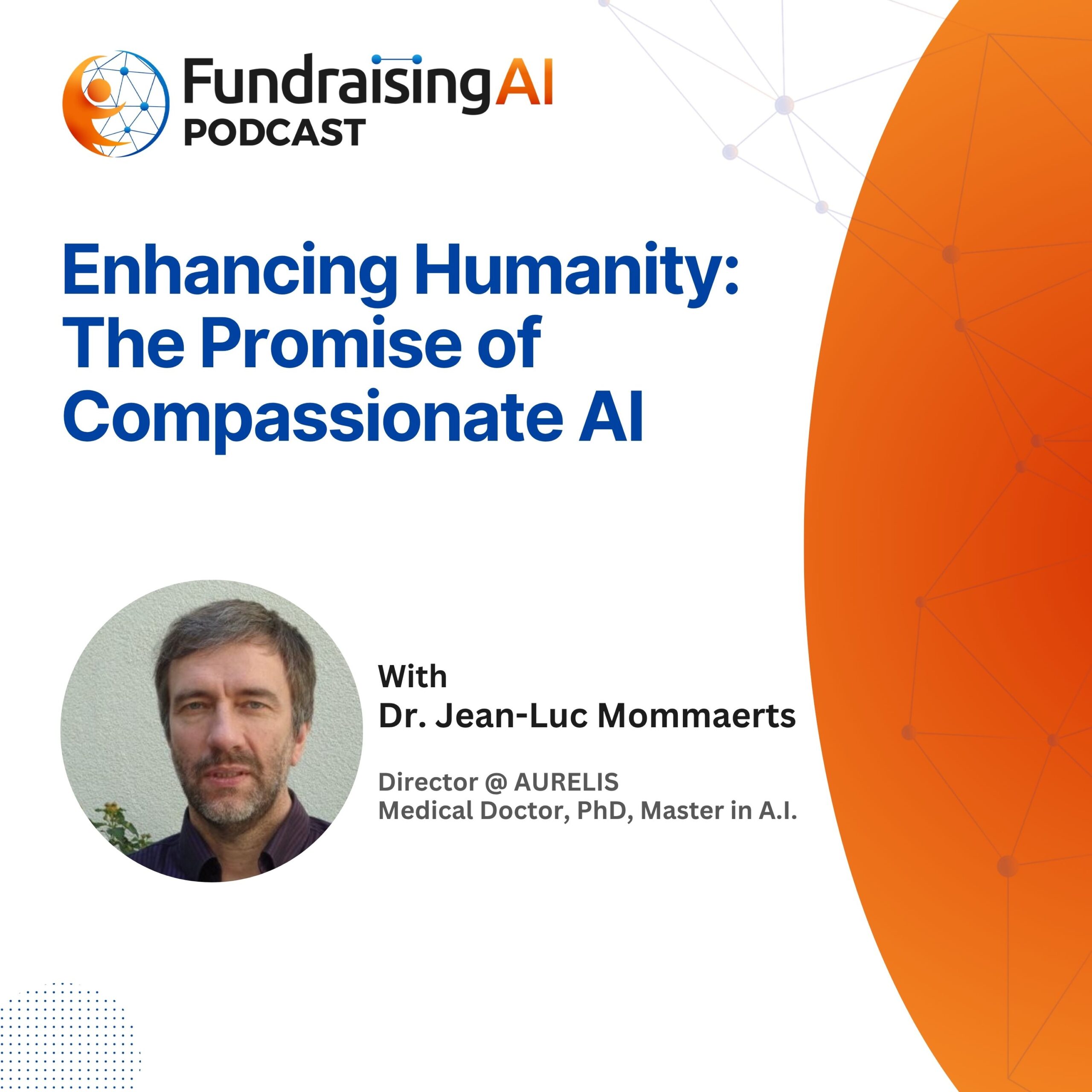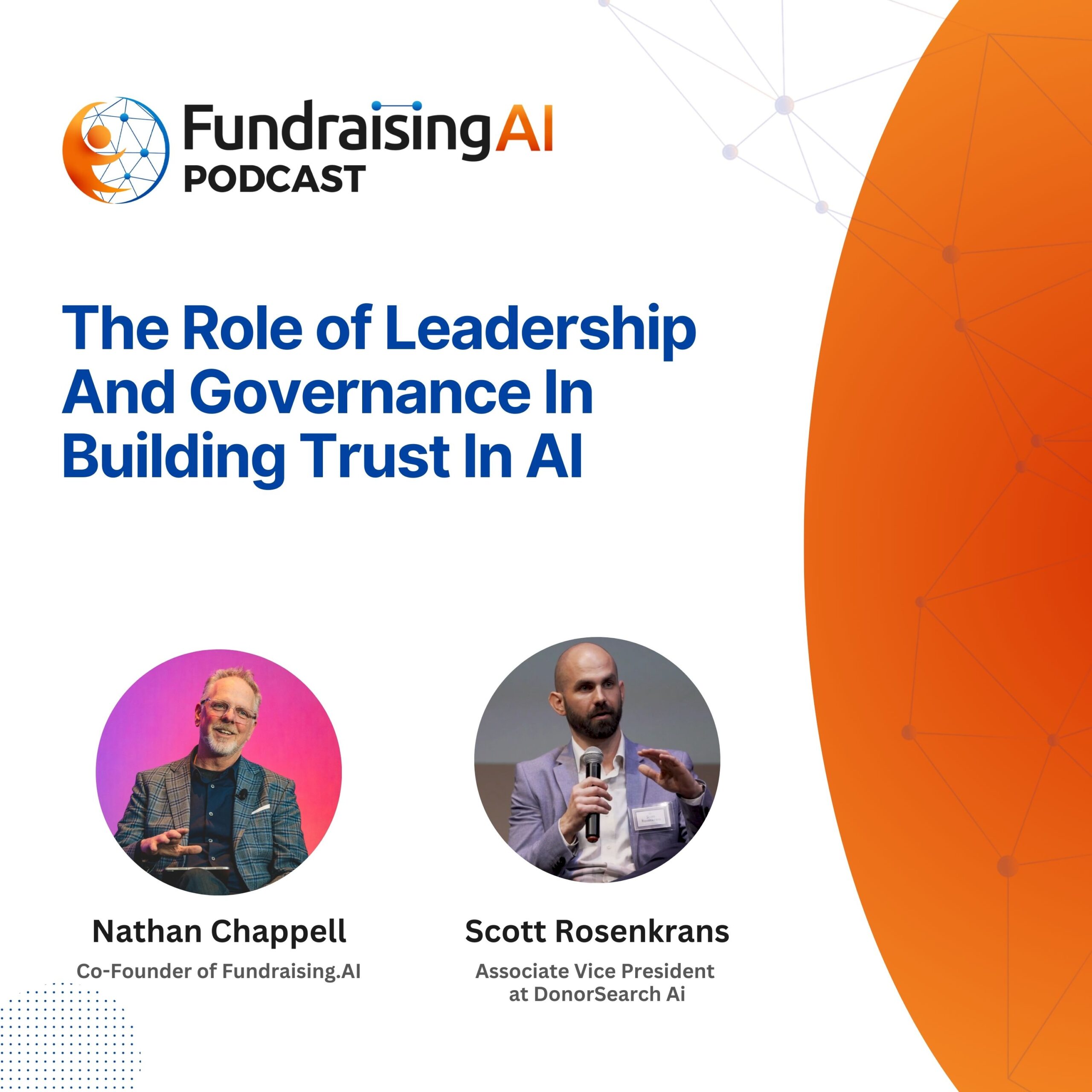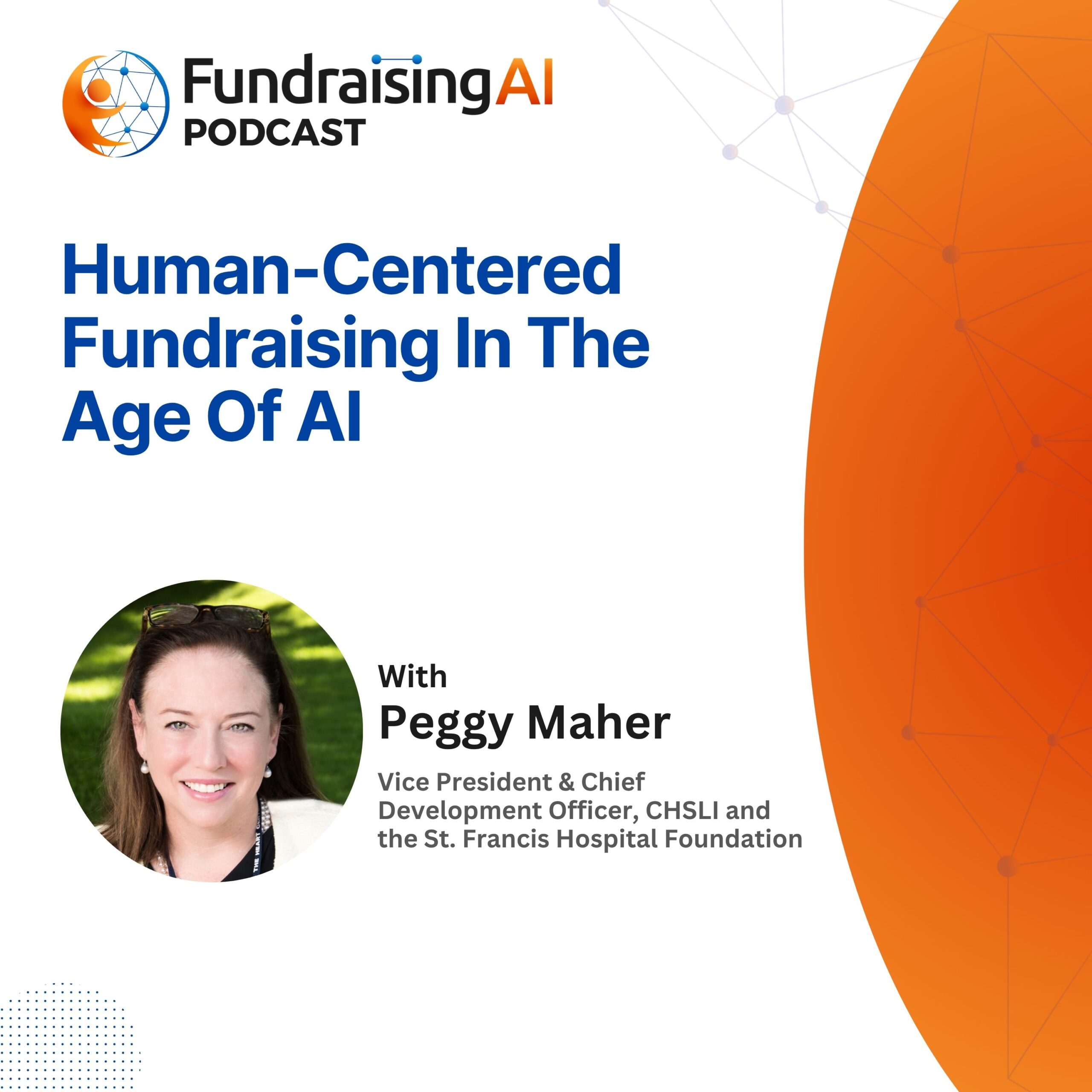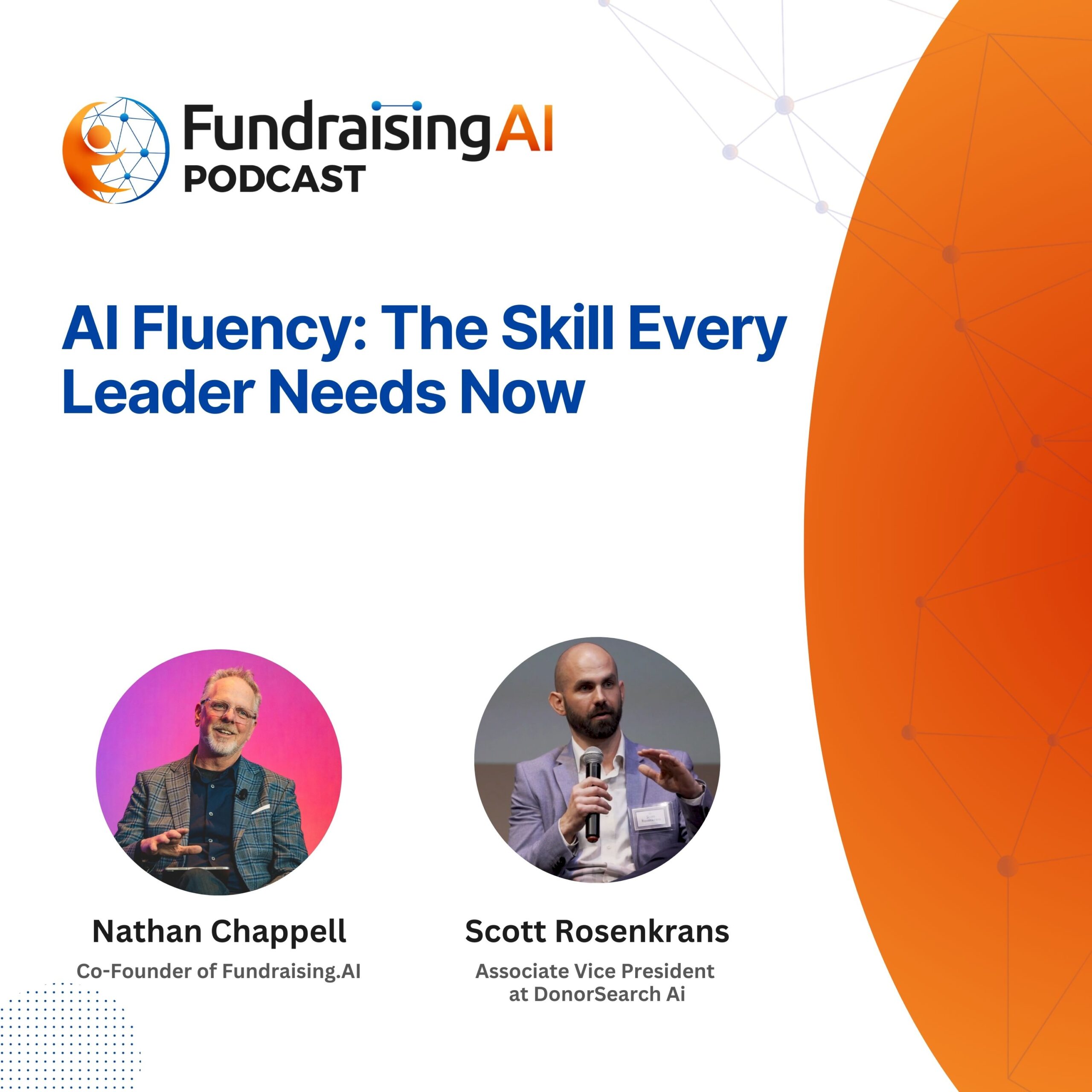Fundraising.AI
Episode 8
Episode 8: Unlocking the Potential of AI with Tim Paris

WATCH ON YOUTUBE

Listen To The Episode
OVERVIEW
Join us in this captivating episode as we explore the transformative power of artificial intelligence (AI) with Tim Paris, a visionary in the field. He is the CEO of Dataro, who spearheads a pioneering venture dedicated to advancing the fundraising endeavors of nonprofits. Through the innovative integration of AI-driven donor predictions, real-time dashboards, and analytical software, Dataro empowers nonprofits to enhance their fundraising income with precision and efficiency.
Starting the conversation, Tim shares his journey from data science to social impact, recounting how he found his calling in using AI to revolutionize nonprofit organizations. Tim discusses the evolving landscape of AI adoption with optimism and pragmatism, drawing parallels between Australia and the US. He emphasizes the importance of mindset and cultural readiness in embarking on AI transformations, shedding light on markers and red flags for nonprofits considering AI integration.
The conversation takes an exciting turn as Tim, Nathan, and Scott explore various AI tools, from GPT to multifaceted agents, and their potential to democratize access to technology. Tim’s enthusiasm for the creative possibilities of AI shines through as he shares anecdotes of his children using AI to unleash their imagination, from crafting mythical creatures to generating bedtime stories.
Throughout the episode, Tim reflects on the profound impact of AI on diverse aspects of life, from nonprofit fundraising to everyday parenting. With insights into the intersection of technology and human ingenuity, this episode inspires listeners to embrace the limitless possibilities of AI while navigating its ethical and practical implications. Tune in for an insightful and engaging discussion on harnessing AI for empowerment and creativity.



EPISODE HIGHLIGHTS
- [01:41] From Data Science to Social Impact: Tim's Journey into Nonprofits and AI
- [04:08] AI Adoption Contrasts between Australia and the US
- [06:19] AI Transformation: From Mindset to Practical Solutions
- [08:14] Assessing Nonprofit Readiness for AI Adoption: Guidelines and Cultural Considerations
- [09:38] Exploring AI Tools From GPT to Multifaceted Agents
- [14:59] AI for Real-Life Applications From Nonprofits to Bedtime Tales



TIPS AND TOOLS TO IMPLEMENT TODAY
- Dive into tools like OpenAI's GPT for various tasks, such as generating content, automating tasks, and providing creative solutions.
- Begin with simple AI applications that can save time and enhance productivity, even if it's just experimenting with chatbots or text generation.
- Follow various experts and resources in the AI field on platforms like Twitter to keep abreast of the latest developments, tools, and use cases.
- Encourage a culture of experimentation within your organization, where team members feel empowered to try out new AI tools and techniques to solve specific problems or enhance existing workflows.
- Instead of tackling everything at once, identify one specific problem or area where AI can significantly impact and concentrate your efforts there.
- Explore platforms that offer no-code or low-code AI solutions, making it easier for individuals with limited technical backgrounds to leverage AI for various tasks and projects.
- Assess the readiness of your organization's culture to adopt AI technologies, ensuring that there is openness to change and a willingness to explore new approaches to problem-solving.
- Look for AI applications that offer tangible benefits, such as saving time, improving efficiency, or enhancing user experience, rather than adopting AI for its own sake.
- Foster a culture of creativity and exploration within your organization and in personal endeavors, leveraging AI tools to unlock new possibilities and solutions.
- Provide education and training opportunities for team members to build their skills and understanding of AI technologies, empowering them to leverage these tools effectively in their work.



FAVORITE QUOTES
- "I think now people understand AI through the lens of GPT, and they're excited. They know they have to use it in some way. They know there's potential there. So now we get to start the conversation here with, 'Hey, this is what you already know. Let me tell you about other things AI can do for you. So I think that's what's probably changed over that timeframe." - Tim Paris
- "There are a lot of cool things going on with AI all the time, and no one's going to keep track of it. So you need to cut through something simple." - Tim Paris
- "The more data you have, the better the targeting and personalization. When someone's dealing with minimal and unstructured data content, it's more challenging. So that's typically how we speak to AI readiness." - Tim Paris
- "Do you have people in the mindset ready to jump into this with both feet? Because that's sometimes what it requires, as there's always inertia with trying these new things." - Tim Paris
- "We used to write everything from scratch: code, emails, and then we would just tell someone to augment it and make it a little bit longer or better or shorter, or change the tone. And then suddenly, we're guiding an agent to do multiple tasks and report back to us. And I think that's nice." - Tim Paris
- "Anyone who's never had employees before probably hasn't experienced the joy of being able to truly outsource and have a conversation. And it's super enjoyable. It's not perfect, right? It breaks all the time. But we're getting closer and closer to that." - Tim Paris
- "The one I'm most excited about is a tool called Devin. That is computer science developer-specific. But in the evolution of generative AI being able to solve problems for us, it went from, 'Hey, we can complete your sentence' to 'Hey, we can generate some codes or help a developer generate a bunch of code for you.'"- Tim Paris
- "Now we're getting into the realm of, 'Hey, you can have multifaceted agents that can do different things simultaneously, like write the code, run the code, debug the code.'"- Tim Paris
- "With all this technology, humans are becoming more abstract; we're getting further away from end-level tasks." - Tim Paris
- "My favorite thing is that many fundraisers say, 'Hey, this blew my mind. I use it every week for these exact trials". And I go, "That's awesome. Keep doing that. Keep exploring, keep playing with it. There will be more and more things that it takes over over time." - Tim Paris
MEET YOUR HOSTS
Nathan Chappell
As a thought leader, public speaker, author and inventor, Nathan is one of the world’s foremost experts on the intersection between Artificial Intelligence and philanthropy. Nathan serves as Senior Vice President of DonorSearch AI, where he leads AI deployments for some of the nation’s largest nonprofit organizations. Nathan’s subject matter expertise has been featured in several publications, including Fast Company, University of Notre Dame and the Association of Healthcare Philanthropy. In 2021, Nathan founded Fundraising.Ai as a member-centric collaboration of nonprofit professionals with a focus on data ethics, data equality, privacy and security, sustainability. Nathan presented the first TEDx on the topic of artificial intelligence and the future of generosity in 2018. Nathan is a member of the Forbes Technology Council and holds a Masters in Nonprofit Administration from University of Notre Dame, an MBA from University of Redlands, a certificate in International Economics from University of Cambridge and a certificate in Artificial Intelligence from MIT.

Scott Rosenkrans
Scott Rosenkrans is the Assistant Vice President of DonorSearch Ai and has been with the organization for three years. He began his journey in the nonprofit sector twelve years ago as a prospect researcher. He quickly became fascinated with data as he noticed the organization that he previously worked for was amassing a wealth of information but was unsure how to efficiently use the data and resources to its full potential. This led him to become interested in predictive modeling and data analytics. During this time, he began to create an immense commitment to delivering tailor-made machine learning models to nonprofits.
The thing that Scott loves most about working for DonorSearch is the ability to prioritize what is best for the client and nonprofit sector above all else. He believes that growth is our most important core value because the DSAi team continuously evolves and brings a unique perspective that provides value to our clients. He stays ahead of industry trends because of his insatiable drive to constantly try out new things.
Favorite nonprofit: Shriner’s Children Hospital because of their extreme commitment to providing exceptional medical care, while also alleviating the financial burdens on families.
